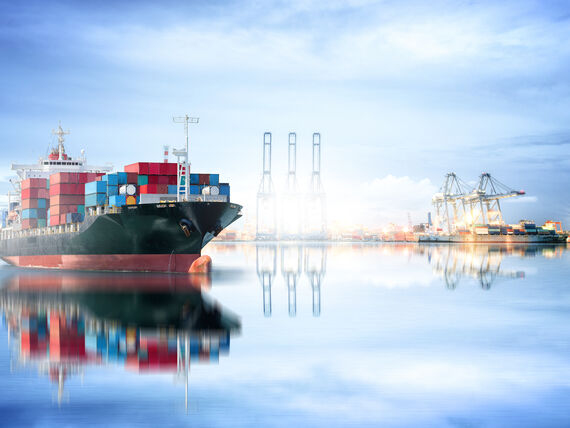BDP Trendwatch: Container ship backlog grows again at the Port of Savannah; First grains ship leaves Ukraine for Lebanon in key milestone; Dredging for Shenzhen port’s western section

Container ship backlog grows again at the Port of Savannah
A backup of container ships off one of the U.S. East Coast’s busiest ports has swelled to 40 vessels, reviving a bottleneck that had cleared earlier this year and raising fresh concerns over potential supply-chain disruptions during the critical peak shipping season.
Officials at Georgia’s Port of Savannah, the fourth-largest U.S. gateway for seaborne container imports, said the delays in getting ships to berths resumed in recent weeks as shipping volumes accelerated after an earlier backlog that topped out at about 30 ships was cut back to nothing this spring.
First grains ship leaves Ukraine for Lebanon in key milestone
Ukraine made its first shipment of grain since Russia’s invasion, marking a small but crucial first step toward unlocking the millions of tons of crops piling up in the country and boosting global food supplies.
The Razoni, a cargo ship loaded with 26,527 tons of corn, left for Lebanon on Monday morning, according to the United Nations, which together with Turkey helped broker the deal to restart exports. Ukraine Infrastructure Minister Oleksandr Kubrakov confirmed the departure and said there were 16 other ships in the greater Odesa region waiting for their turn to sail.
Dredging for Shenzhen port’s western section
Capital dredging will be carried out to widen the waterways in the western section of Shenzhen port in China. This will enable fully loaded 9,000 TEU ships and partially loaded 18,000 TEU ships to enter the western section of China’s fourth busiest container port.
The dredging works are estimated to take three years and would help Shenzhen to hit its target of handling 33 million TEU by 2025.
CMA CGM to levy surcharges for overweight India-US shipments
French container line CMA CGM has implemented a hefty surcharge on overweight containerised shipments moving from India to the US and Canada.
20-foot standard containers weighing over 20 MT, including the weight of the box, now attract a penalty of US$1,000 per TEU until further notice, the carrier noted in a new customer advisory.
Drought threatens major rivers in the U.S. and Europe
For the past two weeks, mainstream media headlines have been awash with news of sweltering temperatures ravaging Europe and parts of North America. At least one segment – the recent record-setting heatwave in the UK – was made 10 times more likely due to climate change, according to the well-regarded World Weather Attribution group.
Federal Maritime Commission to hire investigators for foreign carrier crack-down
As part of the new Shipping Reform Act the Federal Maritime Commission (FMC) announced it’s reorganizing its enforcement structure and plans to hire more investigators to crack down on ports and foreign-owned shipping companies who are breaking the law. The investigative and prosecution functions of the FMC will now be consolidated into a newly created Bureau of Enforcement, Investigations, and Compliance (BEIC). This change is effective immediately.
Viewpoint: Flow of trade flashing more inflation despite decreased consumer demand
“Peak season” is a term in maritime that really has lost all meaning. Since the pandemic began, the ports have been processing record volumes of containers. Inventories were wiped out when the consumer went on a gluttonous buying binge. Now the bulk buying has stopped along with purchases of furniture and appliances since consumers purchased what they needed.
While the buying behavior of consumers has changed, companies are continuing to find ways to manage their inventory.
MPA and Port of Rotterdam to create the world’s largest green and digital corridor
The Maritime and Port Authority of Singapore (MPA) and the Port of Rotterdam have signed a Memorandum of Understanding (MoU) to create the world's largest green and digital corridor.
The MoU will bring together stakeholders across the supply chain to deliver the first sustainable ships sailing on the route by 2027.


